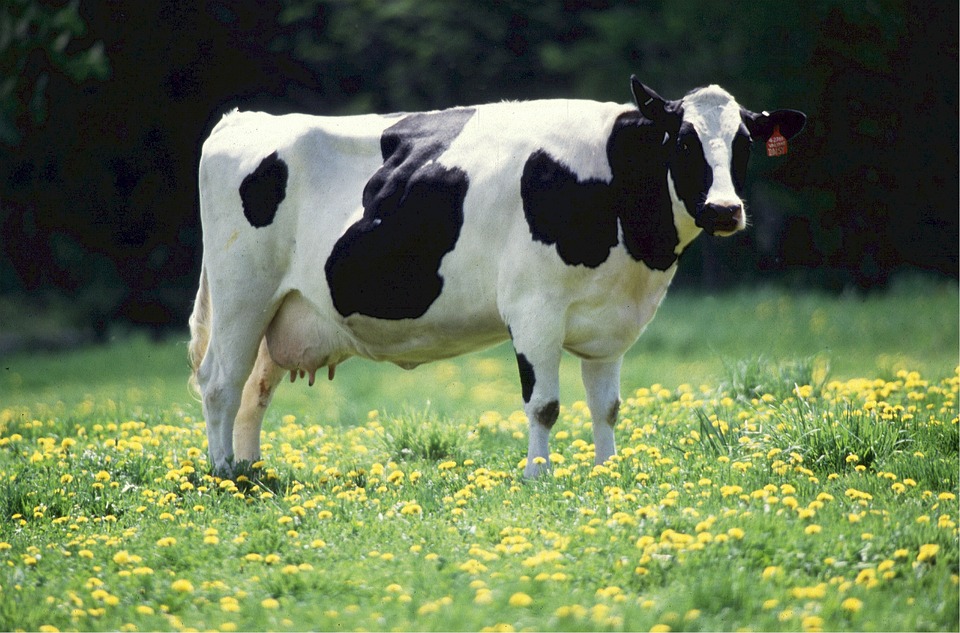By using a powerful gene-editing tool in CRISPR, scientists were able to immunize cows to bovine tuberculosis, which is a dangerous disease that can actually be transmitted to humans. This development could have a huge impact on how livestock is raised all over the world, especially with regards to the use of antibiotics.
Injecting cows and other livestock with antibiotics, mixing antibiotics in their feeds, and even spraying them with antibiotics is a fairly common practice in farms all over the world with the simple goal being to keep as many of them alive as possible. Unfortunately, this has resulted in the widespread complaint of meat having too much antibiotic and the growth of drug-resistant bacteria, Futurism reports.
Then again, there is still a very real threat when it comes to cross-contamination, which scientists can’t simply ignore. This is why the development of methods to genetically make animals immune to diseases via CRISPR has become so important.
Researchers from China’s Northwest A&F University were the ones who made certain cow specimens immune to the deadly respiratory disease. The scientists basically injected 20 bovines with cells that were genetically edited in order to have considerable resistance against TB. Although 9 cows died after 3 months, 11 lived to become even more resistant.
According to Suk See De Ravin, a Laboratory of Host Defenses researcher, which falls under the U.S. National Institutes of Allergy and Infectious Diseases, this new method offers a much safer alternative to what farmers are currently doing. For one thing, it’s basically immunizing the cows instead of pumping them full of chemicals.
“I think this is a very neat study that demonstrates the feasibility of introducing a desired gene of interest via a potentially safer way,” De Ravin explains.
De Ravin did add that more study is needed in order to confirm safety anyway. Farmers can’t simply start injecting cows with strange cells and expect everything to turn out fine.



 Cogent Biosciences Soars 120% on Breakthrough Phase 3 Results for Bezuclastinib in GIST Treatment
Cogent Biosciences Soars 120% on Breakthrough Phase 3 Results for Bezuclastinib in GIST Treatment  NASA and SpaceX Target Crew-11 Undocking From ISS Amid Medical Concern
NASA and SpaceX Target Crew-11 Undocking From ISS Amid Medical Concern  SpaceX Prioritizes Moon Mission Before Mars as Starship Development Accelerates
SpaceX Prioritizes Moon Mission Before Mars as Starship Development Accelerates  Trump and Merck KGaA Partner to Slash IVF Drug Costs and Expand Fertility Coverage
Trump and Merck KGaA Partner to Slash IVF Drug Costs and Expand Fertility Coverage  SpaceX Starship Test Flight Reaches New Heights but Ends in Setback
SpaceX Starship Test Flight Reaches New Heights but Ends in Setback  NASA Astronauts Wilmore and Williams Recover After Boeing Starliner Delay
NASA Astronauts Wilmore and Williams Recover After Boeing Starliner Delay  Neuralink Expands Brain Implant Trials with 12 Global Patients
Neuralink Expands Brain Implant Trials with 12 Global Patients  SpaceX’s Starship Completes 11th Test Flight, Paving Way for Moon and Mars Missions
SpaceX’s Starship Completes 11th Test Flight, Paving Way for Moon and Mars Missions  Neuren Pharmaceuticals Surges on U.S. Patent Win for Rare Disorder Drug
Neuren Pharmaceuticals Surges on U.S. Patent Win for Rare Disorder Drug  CDC Vaccine Review Sparks Controversy Over Thimerosal Study Citation
CDC Vaccine Review Sparks Controversy Over Thimerosal Study Citation  Eli Lilly’s Inluriyo Gains FDA Approval for Advanced Breast Cancer Treatment
Eli Lilly’s Inluriyo Gains FDA Approval for Advanced Breast Cancer Treatment  FDA Pilot Program Eases Rules for Nicotine Pouch Makers
FDA Pilot Program Eases Rules for Nicotine Pouch Makers 































